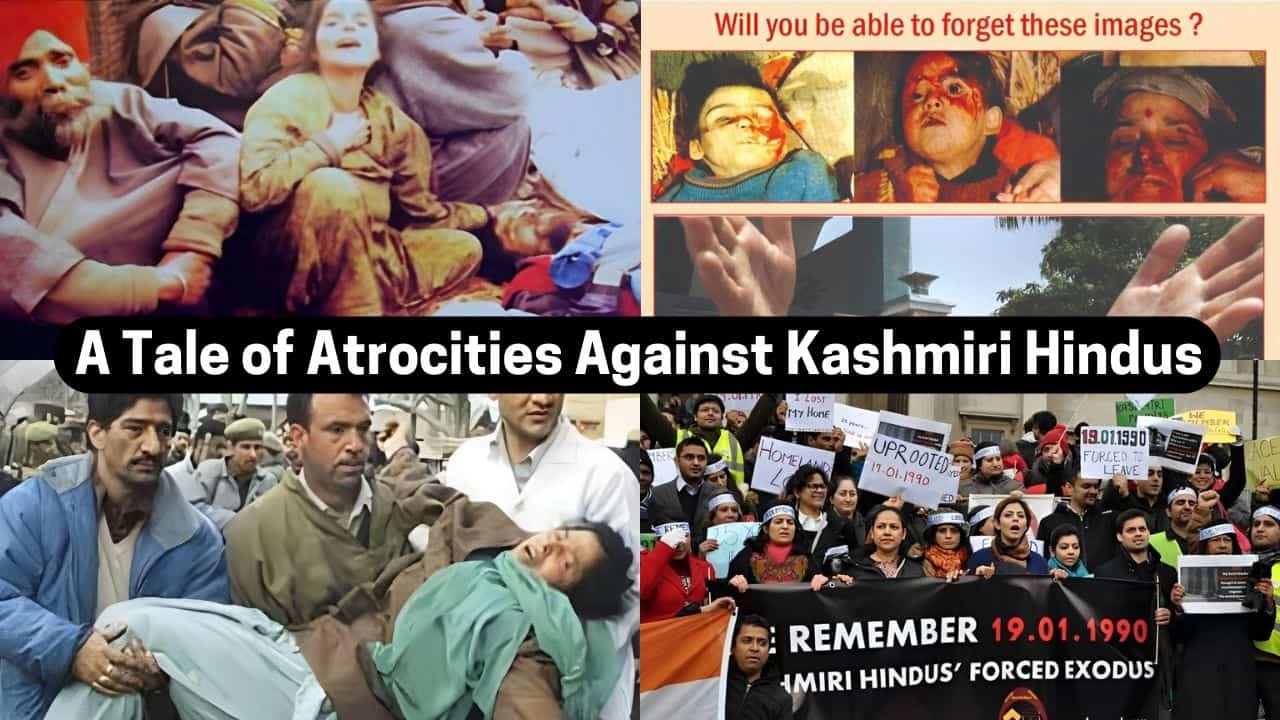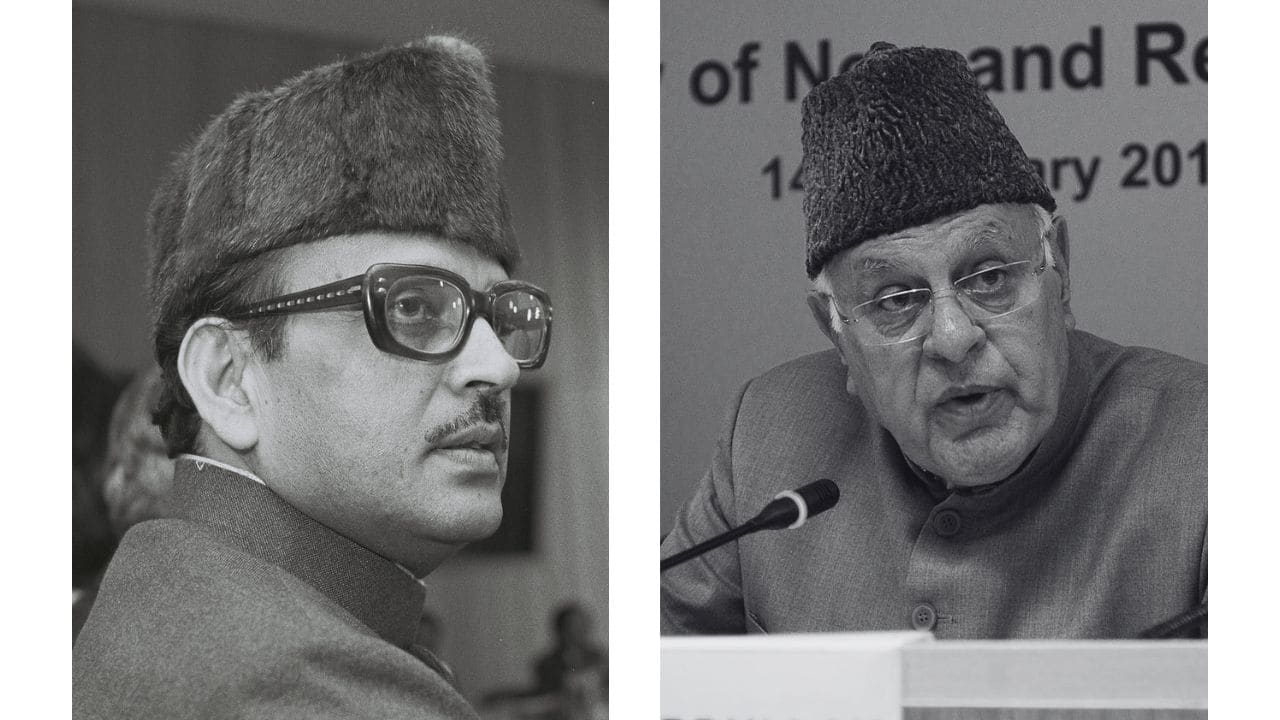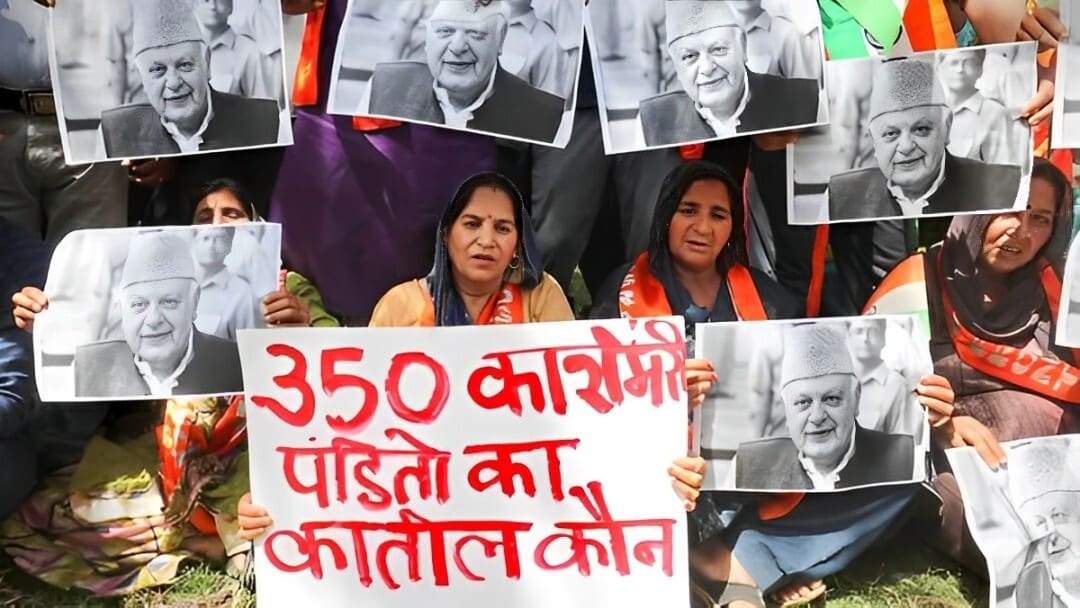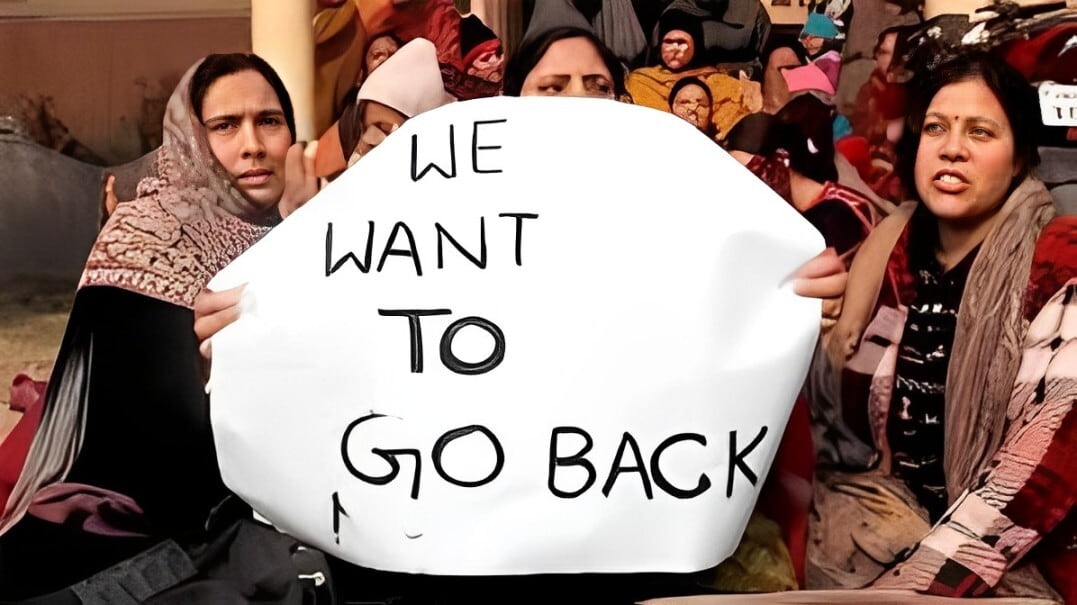A Tale of Atrocities Against Kashmiri Hindus
Beginning with the cataclysm of January 19, 1990, the resonance emanated through Kashmiri Pandit homes: Convert to Islam, leave or perish!” Mosques broadcasted this message, which said “Raliv, Galiv, ya Chaliv,” which was a tormenting order for the Pandit community.
Total Views |

The 90s exodus of the Kashmiri Pandits is one of the darkest shadows on an already stained land by decades long conflict and political confusion! That mass migration was not an isolated event, it was the final act of a series of atrocities committed against Hindus in India’s only Muslim-majority state Kashmir where they were subjected to violence and hostility.
Kashmiri Pandits, the Brahmin community with centuries-old cultural heritage forming part of an ancient J&K represented yet another sub-group within the valley's social fabric. In the late 1980s, however, there was a dramatic increase in insurgency against Indian rule by separatist Muslim activists (often trained or equipped in Pakistan) and some of the political groups resigned their democratic mandates to join an armed struggle.
Taking advantage of common dissatisfaction among the Kashmiri-Muslim population towards unfavourable political conditions and alleged Indian government interference in 1987 elections (rife with charges indicating vote rigging), these militias started an insurgency.
It was January 1990 when the tide turned. Beginning with the cataclysm of January 19, 1990, the resonance emanated through Kashmiri Pandit homes: Convert to Islam, leave or perish! Mosques broadcasted this message, which said “Raliv, Galiv, ya Chaliv,” which was a tormenting order for the Pandit community. This reign of terror was accentuated by horrendous atrocities such as brutal murders, target killings, and gang rapes.
The violence against Kashmiri Pandits was systematic, methodical, and brutal. The assassination of advocate Prem Nath Bhat in December 1989 and the brutal killing of Squadron Leader Ravi Khanna along with his associates on January 25, 1990, by JKLF militants are among several high-profile murders that shocked the community. The violence reached its acme with the shocking killing of Girija Tickoo, a teacher by profession who was raped in groups before being sawed alive.
The first phase of the exodus was reported by various news agencies and books as a killing spree that claimed between 300 and 800 Pandits dead. KPSS, which is one such organisation, says that a total of around 7000 Kashmiri Hindus were killed, along with diverse other sources.
At the end of 1990, some 350,000 Pandits had escaped their homes and migrated to Jammu, Delhi, and other parts of India. The refugees lived miserable lives and endured inhumane conditions. They were roaming to save their culture, fighting the world with them every inch of borders they crossed.
Pandits were exiled, and this defined the cultural and social landscape of Kashmir. The Pandit community, which possessed a rich intellectual and cultural presence in the valley, had now vanished. Temples were desecrated, houses looted, and set on fire; properties were taken over illegally. The thriving community had become extinct, with only a few Pandit families left in the valley.
But nobody was ever really brought to justice in the case of Kashmiri Pandits. Hundreds of murders, rapes, and other human rights violations have never been prosecuted.
For a long time, the responsible government and state authorities have been slammed for not having done enough to save those Pandits or make effective attempts by any group of Pandits to return.
Official records of the Indian Home Ministry reveal 219 Kashmiri Pandits were killed between 1989 and 2004, but other estimates suggest higher numbers.
The struggle of the Pandits has intermittently come to light in public discourse, most notably when films like "The Kashmir Files" were released, bringing back conversations about the exodus and their anguish. Those debates were divisive, however, and exposed the long-established differences in the ongoing conflict in the region.

At the time of the exodus, the government of India was at the centre, led by Prime Minister V.P. Singh, whereas the Chief Minister in Jammu and Kashmir was Farooq Abdullah. The central and state governments faced severe flak for their functioning during these times.
They were charged that the stress and displacement contrasting with Pandits was due to a well-thought-out policy failing of the V.P. Singh government. These critics put forth arguments such as "that it did not take decisive measures for defence of Kashmiri Hindus."
Their all-no intervention allowed the violence to go out of their hands and culminated in the expulsion of the entire community from their ancestral home.

The non-response of the Farooq Abdullah government in J&K to ensure security for Pandits has too been censured. However, despite many alerts and escalating threat perception, the state government was not prepared to ensure adequate measures for protection of minorities. The non-arrest of miscreants and failure to punish those guilty only aggravated the sense of betrayal coursing through Pandit veins.
“There have been off-and-on efforts to rehabilitate the dislocated Pandits over the years. For instance, the abrogation of Article 370 in 2019 that gave special status to Jammu and Kashmir has once again given a small section among Pandits hope for return.”
But for the majority of people, these legal measures are not enough to inspire confidence given the widespread distrust that prevails, and more larger social-political actions need to be taken by New India so that Pandits could return in a secure, dignified manner.

The exodus of Kashmiri Pandits is a chilling reminder of what violence and playing politics can lead to. The horror of this event highlights the vital need to both protect minority communities and ensure justice is served on those responsible for acts of atrocity.
Many Pandits still desire a return to their motherland, but circumstances around this kind of endeavour are messy, and restoration is hard work; it will require cooperation from all fronts.
The misery of Kashmiri Pandits is more than a version in the history books but an imperative lesson from human rights and justice. It demands empathy, conversation, and dedication to make certain history does not repeat itself.
Article by
Shomen Chandra
Sub Editor, The Narrative


